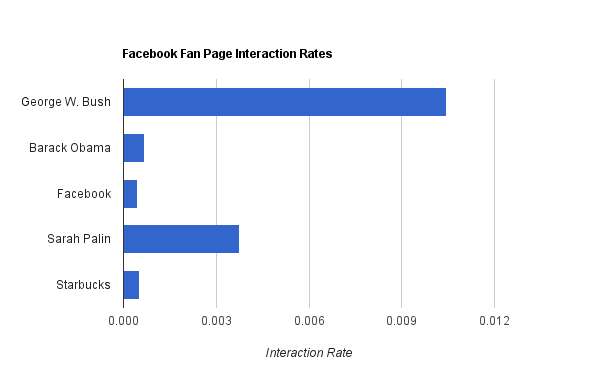William Voegeli, Commentary Magazine.
The liberal-opinion industry spoke with one voice: President Obama’s tax plan was his party’s best hope to avert a midterm disaster. Over Labor Day weekend, Obama called on Congress to continue the Bush tax cuts for every family making less than $250,000 per year and to let income tax rates revert to their pre-2001 levels only on income above that threshold.
The New Republic’s Jonathan Chait wrote that raising taxes on the rich is “wildly popular.” Indeed, voters “are in favor of pretty much any measure that takes money from the rich.” The columnist E.?J. Dionne agreed. Refusing to continue the Bush tax rates for high-income families would rally the Democratic base in advance of the 2010 midterm elections: “What do Democrats stand for if they are not willing to take on this cause?” The New York Times editorialized that the Obama plan, by cornering the GOP, was smart politics on behalf of good policy: “Holding the middle-class cuts hostage to those for the wealthy would pose both a political danger to Republicans and an economic danger to the nation.”
And then a funny thing happened. Nothing. First the Democratic House and then the Democratic Senate decided to adjourn without holding a vote on Obama’s tax proposal. They wanted to go home to campaign, but a decisive contingent of vulnerable incumbents refused to campaign on that. Democrats postponed consideration of the issue to the relative safety of a post-election lame-duck session.
The commentariat was furious. The Democrats have taken the “Curl Up in a Fetal Position Plan on taxes” wrote Chait, a choice he found “crazy,” “pure political suicide,” and “one of the nuttiest decisions, on pure political grounds, I’ve ever seen.” Expressing himself more temperately than Chait, as most people do, Dionne wrote, “For the life of me, I don’t get why some Democrats are so afraid of this vote.” “Profiles in Timidity” was the Times’s editorial verdict when the Democrats decided not to decide.
There are two problems with this indictment. First, voting for the Obama tax plan wasn’t supposed to require any Democratic courage. All the risks would befall those Republicans who were so foolish or doctrinaire that they would vote against lowering taxes for lots of people to avoid raising them for just a few. Second, this threat analysis was confidently delivered by people who were not themselves threatened—journalists, whose careers won’t be altered by the midterm elections—and rejected by people who were—legislators who would be hoping to catch on with lobbying firms or think tanks if the Obama tax plan turned out to be less popular than the journalists had promised.
Found Chait’s article here. Chait points to Matthew Yglesias, who calls it “Voters Want To Soak The Rich” when poll respondents indicate, 55-43, that it would be “acceptable” to increase federal taxes on families earning more than $250,000 a year.
You can come to your own conclusion of whether too much meaning is extracted from too little evidence. I think I’d be in the 55% that say a tax increase on families making a quarter million is “acceptable”; it’s constitutionally permitted at this point. But that doesn’t mean it would be good for this economy.
Neon-Dionne opined here. I find the statement “In the absence of a coherent case, Republicans were winning by default on a wave of protest votes” to be a real howler. Let’s see: The nation is in financial chaos because not enough people are making money. In my book, “it oughtta be alright to make some money” is a coherent case if nothing else is. If a culture is created in which there’s something wrong with you when you’re too productive, and you need to be punished for it — how in the world can any recession ever end?
The Times editorial is here. It makes the argument that a tax cut for the “wealthy” — this is already treacherous territory, for this country doesn’t have a wealth tax, only an income tax — would cost revenue. Hundreds of billions of dollars “would be lost to the top 2 percent of earners in the next decade if their taxes do not rise.”
This has been exposed as a falsity the first time we cut tax rates and experienced increased tax income as a direct result. And then, we did that a few more times. I’ve yet to hear of it going the other way; we cut a tax rate, and aw darn the revenues fell because the rate was cut. Are there examples of this? I don’t see anyone offering any. That is why we have this notion of a “tax cut costs money” down as Item #7 on our list of things that give you away as a clueless dork.
So our usual leftists are irked by the idea of taxes being cut for the “wealthy,” and they like to see the taxes increased in those brackets. This is not new, and it may be legitimate to say in these post-French-Revolution times, this is a good definition for what that word “left” really means: Make some profit for yourself, and you shouldn’t be allowed to get away with it. The more you’re taxed, the better.
What I do not understand is the adrenaline. Why do they get so upset when the possibility emerges that a rich person might not get taxed? It’s not just Chait/Yglesias/Dionne/Times-editorial-board. Could it really be explained by arrested development? I’m middle class, I want everyone else to be middle class too…I have to carry a lunch box to work, I want everyone else to have to make themselves baloney sandwiches every morning too…I can’t drive a Lexus, I don’t want you to drive one either…
That can’t be it. There are rich liberals around, and I’m not just talking about Warren Buffet. Some liberals are richer than other liberals. How come we don’t have liberals grilling other wealthier liberals about mailing off extra dough to the IRS, until the glorious day comes that their tax liabilities are assessed at the level they should be?
Are they being deficit hawks? Don’t make me laugh. Yeah, a lot of liberals qualify for Item #7. But if they cared about deficits, they’d remain concerned about the deficits when the time came to spend money.
I don’t understand why the average progressive mind becomes so agitated and unhinged about the slope of this taxation curve. Even if they are the direct beneficiaries of the associated services, this country has been drunk on deficit-spending for decades so it’s not like they’ll feel it when the rich are soaked-real-good. Is this nothing more than a middle-school-level “us versus them” thing? I just don’t understand it, the hatred.
Their more moderate fellow citizens aren’t backing ’em on it. Most of the fleecing that’s been pulled off on me personally, successfully and otherwise, has actually been perpetuated by poor people; “rich” people have been relatively nice to me. And I have the impression most people share that general experience.
But when the rubber hits the road, when a rich person makes a little bit more money, alright let’s say there’s a marginal possibility some other fellow would be a better judge of how that money should be spent and where it ought to go. But if that other guy can make a better decision there than the rich guy who made the money, wouldn’t the other guy have been the one to make it?












 The other thing that’s important to note here is that when we apply anecdotes from our own experience to the thought processes that form our behavior, we are indulging in what in the higher-education environment is referred to as “prejudice”; this is, of course, actively discouraged there. There is much complaint now that college campuses are maintained as diverse environments only in terms of skin color, not in terms of ideological leanings. But the truth is that it isn’t really possible for a college campus to lean in several different ideological directions, nor in several directions on any discussed question or issue, when participants are dissuaded from relying on any-and-all previously cherished values or previously experienced events. Without those, there can only be — what you learned in prerequisite coursework, what you have been told here this semester, and what you are experiencing today. The compliant but diligent student will not allow anything else to affect the outcome.
The other thing that’s important to note here is that when we apply anecdotes from our own experience to the thought processes that form our behavior, we are indulging in what in the higher-education environment is referred to as “prejudice”; this is, of course, actively discouraged there. There is much complaint now that college campuses are maintained as diverse environments only in terms of skin color, not in terms of ideological leanings. But the truth is that it isn’t really possible for a college campus to lean in several different ideological directions, nor in several directions on any discussed question or issue, when participants are dissuaded from relying on any-and-all previously cherished values or previously experienced events. Without those, there can only be — what you learned in prerequisite coursework, what you have been told here this semester, and what you are experiencing today. The compliant but diligent student will not allow anything else to affect the outcome.